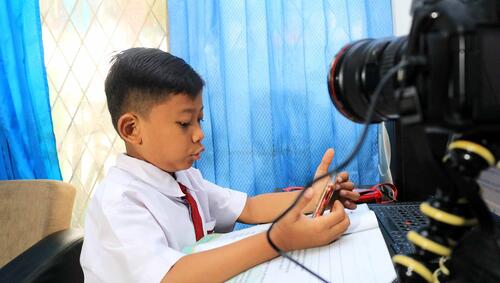Southeast Asia Sees Sharp Decline in Education Satisfaction

Southeast Asia Sees Sharp Decline in Education Satisfaction
When the COVID pandemic broke out in early 2020, schools across the world were forced to shut down operations to slow the spread of the virus. As a result, students transitioned from in-person learning to online learning within a matter of weeks. While remote learning poses difficulties for students everywhere, it has been particularly challenging in developing countries and rural areas where students already face high barriers to a quality education.
Southeast Asian countries used to rank among the highest in the world for education satisfaction. However, according to a poll conducted by Gallup, an American analytics and advisory company known for its worldwide public opinion polls, regional figures of education satisfaction fell from 85% satisfaction with local schools in 2019 to only 63% in 2020 across Southeast Asia, with both Indonesia and the Phillippines experiencing a 30% decrease in education satisfaction.
School closures in Indonesia and the Phillippines exposed and widened the deep economic inequalities affecting children who come from socioeconomically disadvantaged backgrounds and those who live in rural areas where there is no internet access. While the Indonesian and Filipino government has made considerable efforts to enable internet access across the country, many residents still don’t own laptops or other smart devices that are more conducive to online learning. Additionally, students in regions where there are less resources to support remote learning not only face a steep learning loss, but many have also had to drop out in order to help support family incomes. A recent World Bank report even estimates that the pandemic has already resulted in a loss of 0.9 to 1.2 years of learning for students in Indonesia.
To combat the learning crisis, teachers in Southeast Asia have tried some creative ways to engage their students. One teacher in Cagayan, Philippines started recording podcasts so that students who aren’t able to sit by a computer screen can easily access audio recordings of her lesson plans. Some activists in the Phillippines have also started campaigns to support education leaders running for office in the upcoming election in the hopes that they will be able to address the learning crisis. But this is not enough to address the root cause of the problem.
The pandemic has highlighted the urgent need to make education systems more resilient in vulnerable communities. The pandemic’s impact on education underscores the importance of technology in students’ lives and the role that the government can play in making sure that students are equipped with the resources they need to access a quality education. I think this education crisis could provide political opportunities for education leaders and grassroots activists in Southeast Asia to run for office and take up space in local government. I also think Southeast Asia is at a critical turning point where this crisis could pave the way for rapid modernization in rural areas, either through the establishment of youth nonprofit organizations or some other community spaces that can connect students to a more stable learning environment.
Sources: